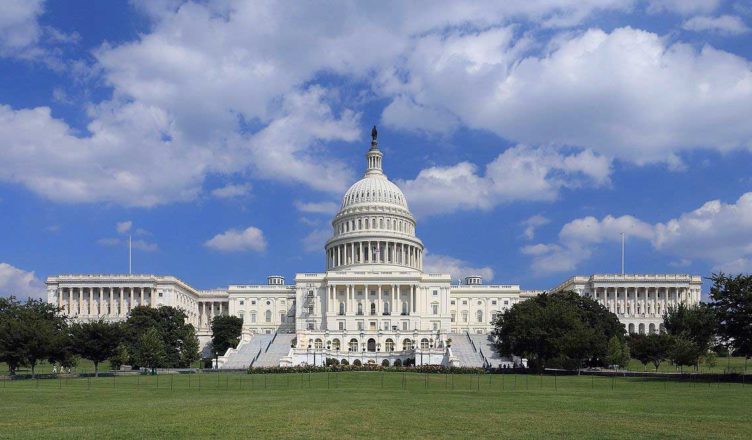Picture this: A world in which the government decided to come together and forgive all federal student loans.
Sounds nice, right? I’ve always thought so!
But while on Quora today, I came across a question that forced me to actually think about the repercussions of such a scenario, which I had never really given much thought to (aside from knowing that I would instantly have a lot more money to spend each month!).
Need help keeping track of your student loans? Download our free Student Loan Spreadsheet!
So, what would happen if the government decided to forgive all federal student loans?
While I don’t pretend to fully understand the complicated forces that drive the US and world economies, I do think that my answers (below) are all well within the realm of reason.
Editor’s Note: I’m not laying out these points in order to make an argument one way or the other either for or against student loan forgiveness—I’m just thinking out loud. I’m personally very much in favor of the government paying for college. That being said, there would be winners and losers on both sides of the equation, and we need to keep this in mind.
So without further ado, here are some of the major repercussions that I expect would happen if the government decided to one day forgive all federal student loans.
1. There would suddenly be a hole in the federal budget.
Each year, Congress must pass a budget which is used to direct government spending for the year. In addition to expected and proposed spending, the budget must also take into account cash flow. Some of this cash flow comes from taxes, but there are other sources as well. One such source? The repayment of federal student loans.
The repayment of student loans (both principal and interest) contributes to the federal budget, to the tune of roughly $1.6 billion in profit (in 2016).
Though a relatively small figure compared to total government spending, if the government decided to forgive all federal student loans, that’s still nearly $2 billion in revenue that would suddenly be removed from the federal budget. And because student loans are typically repaid over the course of 10 years (or more) that means that this hole would continue into the future for at least a decade. Taken altogether, instantly forgiving all federal student loans would mean the government would have to swallow a total bill of at least $1.4 trillion.
And that could have repercussions on other programs that are funded by the federal government. After all, the money has to come from somewhere. If that $1.6 billion per year is no longer coming from student loan payments, the government would either need to raise more revenue from taxes or cut the budgets of other federal programs.
2. But it could unleash the economy.
The average monthly student loan payment is something like $351, and there are about 44.2 million Americans with student loan debt. If all of this debt was forgiven, that would mean that 44.2 million people would suddenly have $351 more dollars to spend each and every month. All told, that’s roughly $15.5 billion each month, or $186 billion each year.
Freeing up all that money in the budgets of 44.2 million Americans would mean that they could spend that money on other things—things like consumer goods, cars, houses, services, starting businesses, and investing for the future. This would cause a lot of sectors or the economy (but not all sectors, as we’ll talk about below) to become more profitable.
And as people spend this money and the economy improves, the government would inevitably begin taking in more revenue in the form of taxes: Income taxes for the federal government, and sales taxes for states.
All of this means that the hole in the budget that we discussed in point #1 might not really matter all too much, because it could be patched thanks to increased spending leading to increased tax revenues—without tax rates needing to be raised.
3. Still, the market would get choppy.
The stock market likes it when things are predictable, and the federal government suddenly forgiving student loans is definitely not predictable. That means that the entire stock market would likely get more volatile and shaky as investors try to determine what the true impact of this policy will be.
Volatility can cause wild swings in valuations, which can have a negative impact on investors. While many young people either don’t have investments or have plenty of time to make up for these (hypothetical) swings in value, older Americans nearing or in retirement could wake up one morning to find their retirement portfolios slashed. And that could have major impacts on their ability to have meaningful retirements.
The sectors most likely to be impacted? I’d guess Finance (because forgiving student loans would directly impact their way of doing business) and Consumer Goods (because, like we said above, people would be spending more on these kinds of purchases). Finance would likely go down, at least in the short term, and Consumer Goods would go up.
4. Student loan servicers would likely go out of business.
Student loan servicers like Navient, Great Lakes, OSLA, and others all make money by servicing (or managing) federal student loans. They collect payments, help borrowers qualify for deferment, forbearance, and forgiveness, and set borrowers up with repayment plans. And if federal student loans were suddenly gone, these companies wouldn’t have any reason to exist anymore. They’d either need to significantly shift their business models (perhaps by becoming private lenders) or go bankrupt and need to close down.
You might be thinking: Good, I hate my student loan servicer! But you have to remember that these companies employ a lot of people. If the companies were to suddenly go out of business, that means that many people would suddenly be without jobs. And with the shaky finance sector (see #3 above) they’d probably have a hard time finding new jobs in the finance sector. That likely means they would have to settle for lower paying work in a different industry.
As an example: Navient, the largest of the federal servicers, has around 6,000 employees that would suddenly be without work.
5. Private student loans wouldn’t be forgiven.
The federal government has no say over private student loans. That means that borrowers unlucky enough to have private loans would still need to repay their loans, and I don’t think they would be too happy about that.
I mean, would you be? Just imagine how angry you would feel if you found out that millions of people had their student loans forgiven, but you didn’t because your loans were private. You’d be raging.
All of this anger could translate into civil and political unrest, as borrowers of private student loans demand that their loans, too, be forgiven. To ease tensions, the federal government may decide to pay these loans off for these borrowers, but that would lead to an even larger hole in the federal budget, and would cause trouble for all of those private companies.
6. Future student loans would get more expensive.
If all federal student loans were forgiven today, and the federal government decided they were no longer going to offer new student loans, but college remained as expensive as it is right now, then future students would still be forced to borrow student loans.
Because the federal government is out of the picture, these would all need to come from private companies. While there are many differences between federal and private student loans, one of the most important is that private student loans have higher interest rates. In the past, the rates that they could charge were kept down by the fact that the federal government also offered loans: In order to be competitive, they couldn’t charge too much for their loans, or no one would borrow. But without federal competition, these lenders would be able to charge as much in interest and fees as they want (unless the government steps in to regulate the matter).
That could mean that student loans get even more expensive and predatory in the future.
A Symptom, Not a Disease
Like I said, I’m not laying these points out to make the case for or against mass student loan forgiveness. I’m just thinking out loud to try and understand some of the possible outcomes that would happen if the federal government forgave all student loans.
Borrowers would likely benefit a lot, but there would, of course, be losers, so it’s understandable why this debate has been raging for decades. It’s a complex problem, touching many parts of our economy and impacting many millions of Americans.
An important thing to remember is that college debt in and of itself is a symptom, not a disease. Though it’s painful, the real cause of this pain is the astronomical rise in college costs that have plagued higher education since the 1970s.
Personally, I think the smarter bet would be for the government to either fund college outright and do its part to rein in the exploding cost of a college education. That way, at least the students of the future would be able to graduate without insane levels of student debt, which would help us avoid these scenarios altogether.
What do you think would happen if the government decided to forgive federal student loans? I’m sure I didn’t think of all of the angles, so I’m curious to know what everyone else thinks!






